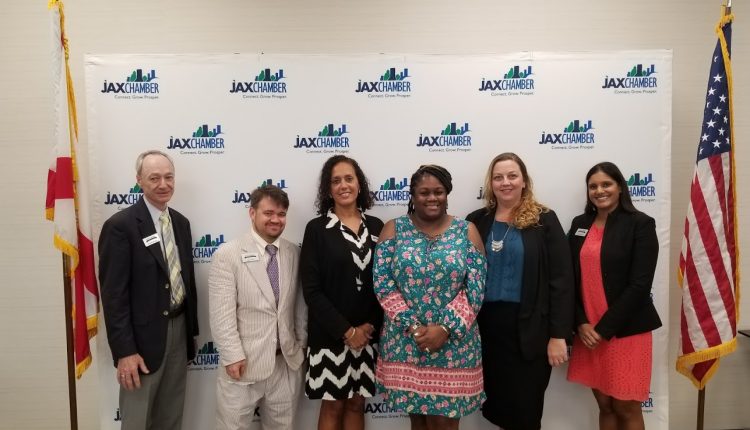
Can’t the Feds and the State Work Together?
By Joe Knilans, Rural Affairs Advocate
The Advocacy team recently visited Florida, not to surf and sit on the beach, but to hear from small business owners in Florida. The Advocacy team stopped in Tampa, Orlando and Jacksonville, conducting regulatory reform roundtables and site visits to hear firsthand from the small business owners about their struggles with federal regulations. While in Jacksonville we were able to sit down with land developers, consultants, realtors, and local government officials. Their issues ranged from FEMA to U.S. Army Corps of Engineers, flood maps, and wetland plant species.
Every one of the participants had issues with FEMA and its permitting process. One of the biggest concerns with FEMA was the letter of modification process and how long the approval process takes. The letter of modification process or Letter of Map Amendment gives a land owner the ability to request a change in the flood maps because they feel they were inadvertently mapped in a high-risk flood area, also known as a Special Flood Hazard Area (SFHA). The experience that these developers, realtors and consultants had was not positive. Sometimes the wait could take up to a year for approval of the request, causing hardship and uncertainty. We also heard other concerns with the approval process. By the time they received the FEMA approval their state permits had expired, causing them to start the process all over again. Some of the recommendations they made were to delegate the approval process to the state agencies or recommend the state agencies accept FEMA’s approval and allow the project to move forward.
The participants also had issues with the U.S. Army Corps of Engineers (USACE) process of determining wetlands. One of the consultants mentioned the process that the USACE uses to determine which endangered plant species will be used for a determination of wetlands. As a Botanist he pointed out that many of the plants used to determine wetlands can be found in upland areas not just wetland areas. He also mentioned that the USACE uses more of a regional point of view instead of local or state point of view. This is the “one size fits all” approach. A recommendation was to allow the individual states to determine which plant species would determine a wetland and recommend the USACE follow these guidelines.
The spirted conversation lasted for over two hours and we still had a lot to discuss. They ranged from employment shortages to health care cost affecting the bottom line in their industry. Although we heard many concerns we also heard some good solutions. They often ask the question “why can’t the government do it the same as the private sector does.” Streamlining the permitting process is one of the most talked about solutions by the private sector. This could easily be achieved by reducing the redundancy of forms. Another idea for reform was to hold federal and state agencies to the same deadlines that the private sector is held to. When there are no deadlines or a six month period that the agencies can take to approve permits, this can lead to uncertainty and that slows small business from growing. They felt that in order to keep Florida and the country as a whole growing we need to bring more private sector ideas into the government to enhance government services.
Advocacy was in Florida for Regional Regulatory Reform Roundtables June 5-7th.
Can’t get to a roundtable near you? Fill out this form and tell us about your federal regulatory burdens. We will pass this information on to the appropriate agency and use it in the planning of upcoming Regional Regulatory Reform Roundtables.
Joseph J. Knilans is the Rural Affairs Advocate. In this role, Knilans advocates on behalf of rural small businesses and local communities with a population of 50,000 or less around the country. Knilans can be reached at joseph.knilans@sba.gov.
